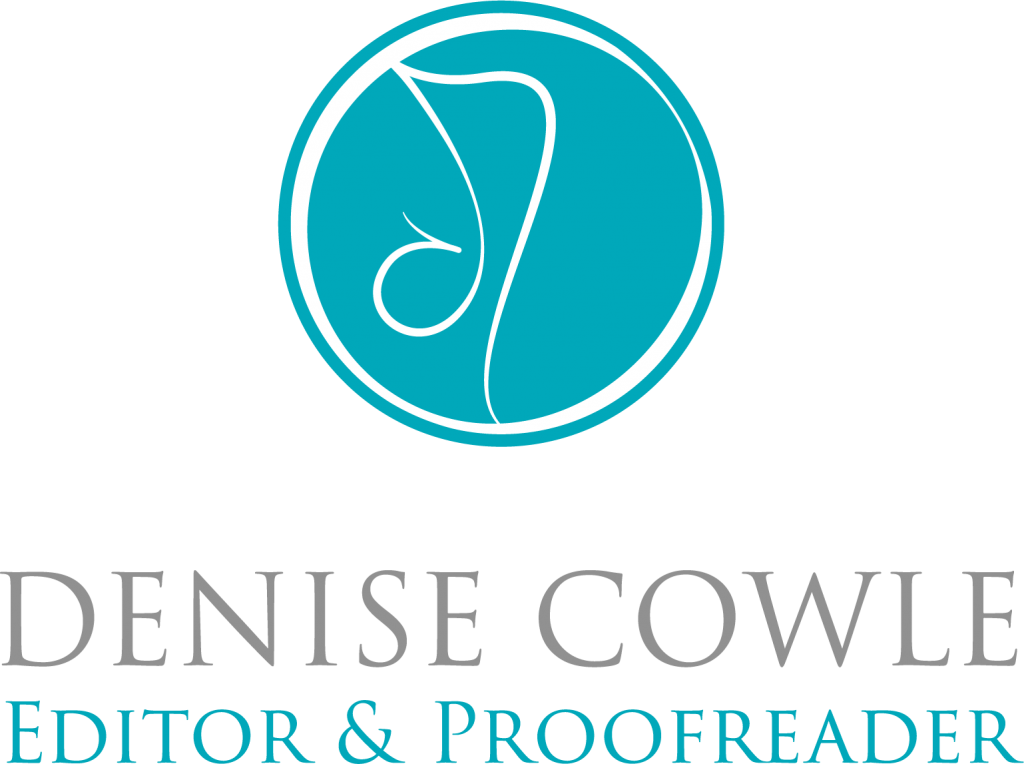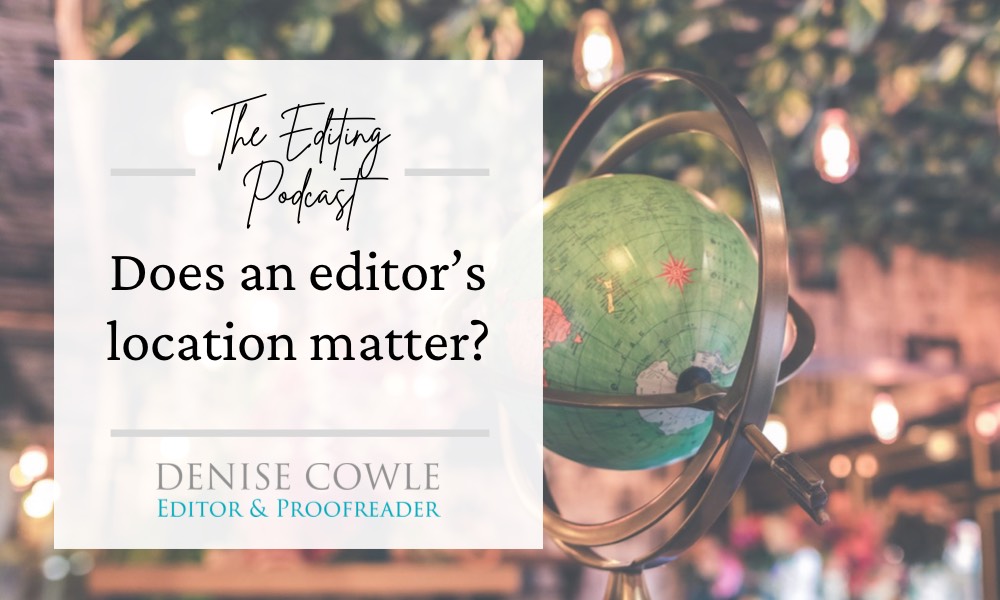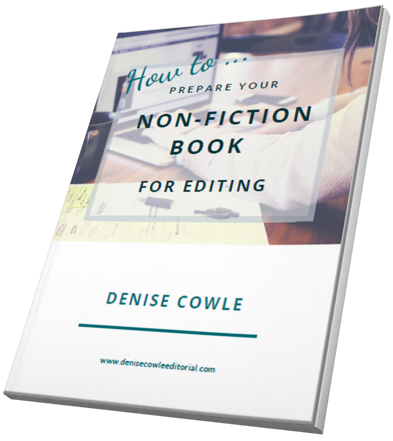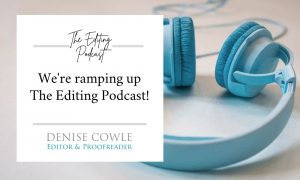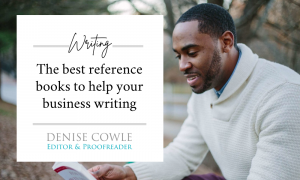In this episode of The Editing Podcast, Louise and I discuss whether an editor’s location matters. Listen to find out more about location in relation to:
- Local, regional and national knowledge
- Spelling, idiomatic and dialectical variance
- Communicating with global audiences
- Refining searches for editors
- Time-zone advantages
Louise Harnby: Hello, and welcome to Episode 11 of The Editing Podcast. This week we’re going to talk about location and whether where your editor lives actually matters.
Denise Cowle: That’s right. So the answer, as usual, is … ‘it depends’!
LH: That’s your favourite phrase, isn’t it, Denise? When you got married and the registrar said, ‘Do you, Denise, take Andy to be your lawfully wedded husband?’, is that how you answered?
DC: Haha! No comment!
LH: Anyway, so we’re going to break this discussion down into three sections. First, we’re going to look at situations where location does matter, then situations where you think it might matter but in reality it probably isn’t an issue, and finally the situations where location is pretty much irrelevant.
When location really is important: local knowledge
DC: So let’s talk first about why location will be important. Now, it could be that your book is themed around a particular town, region or country’s culture or economy or history, and you’re looking for a deeper level of editing and an editor who has that location-based knowledge. So, for example, you’ve written a local-history book, and you want to work with someone who’ll help you spot irregularities that concern that region’s history. Or if your novel has characters with a strong regional dialect, you might want an editor who speaks or understands that dialect. For example, not all Scots talk the same way – there are regional accents and dialects which vary hugely, even within relatively small geographical areas.
LH: Yes, though don’t assume that just because someone lives in a certain place they’re from that place. Not long ago I was contacted by an Australian author who’d got in touch with me because he saw I lived in Norfolk – the UK one. And I had to tell him I grew up in Buckinghamshire, was educated in Portsmouth, then lived in London, and I only actually moved to Norfolk 15 years ago. So an editor’s location might not be quite what it seems.
DC: Exactly. I was born in and live in Scotland, but I also lived and worked in England for years. And I think the point is that editors, just like everyone else, pick up knowledge from all sorts of life experiences. Searching by location only can be limiting from that point of view. Still, if it’s local knowledge you’re looking for, it might be worth hunting that out, though that kind of specialist knowledge might be less about where an editor lives and more about what their interests and experience are. I think it’s going to need a conversation beyond where they live.
When location really is important: ethical or political reasons
LH: Yes. So the next reason might be because you’re committed to working with a local editor for ethical or political reasons. So, for example, you might want to support your local, regional or national economy, which is a really good reason to narrow your search by location, as long as you can find the right-fit editor for your book and your way of working. I had that not long ago. A thriller writer who lives in the next village absolutely wanted to work with someone from the region, not because his book was set locally – it wasn’t – but just because he’s always hired by local people and he wanted to reciprocate.
DC: I think that’s a really positive approach – if you can make it work for you. And another reason to go local is that you might need to meet up with your editor. Now, these days, the likes of Skype and Zoom mean we can have face-to-face conversations with anyone from anywhere, but if you do need someone on site – I’m thinking here that there might be issues around privacy, security or confidentiality and you don’t want your files going off-site – then location is absolutely going to be important.
When location really is important: organisational policy
LH: And there’s one final reason why location might matter. Some universities – I know the University of Essex in the UK is an example of this – so some universities insist that students work with local proofreaders. Those people have to live in the county of Essex. It’s their policy and an editor can’t get on their list of freelance proofreaders if they don’t live in the region.
When location doesn’t matter as much as you’d think: spelling variations
DC: Okay, so let’s turn now to a few of the reasons why you might think location matters but it probably doesn’t. So let’s talk first about spelling differences. I really don’t think this is a problem for most editors, do you, Louise?
LH: No, I agree. I really don’t think it’s a factor.
DC: So most editors read books that are written by authors from all over the place. And if we’re asked to edit for Canadian spelling or US spelling, even though we’re based in the UK, we just use to the relevant style guides and dictionaries.
LH: Yes, and I think it’s worth emphasising that a pro editor should understand that there is no single way of spelling anything – there are nationally accepted standards and recognised variations. Any pro editor who doesn’t know that doesn’t deserve to call themselves a pro. It’s not about wrong and right – it’s about convention and style choice.
DC: That’s right – so the best thing to do is to tell your editor what your spelling-variation choice is and ask them if they’re comfortable editing in that.
LH: And just to say, Oxford Dictionaries Online is a really good resource for editors and writers because even the free version includes UK and US variations. But I’ll talk about that more later.
DC: OK – are you hogging that for your Editing Bite, Louise?
LH: Maybe! I’m saying nothing.
When location doesn’t matter as much as you’d think: idiomatic phrases
DC: Ha. Right, so moving on … another related factor here is idiom. And again, I think this isn’t the problem some people think it’s going to be. Most of us are so used to hearing people from different places speaking in their own ways that idiomatic phrases won’t throw an editor.
LH: That’s right, and even if we’re not sure, we’ll query rather than marking it as wrong. I have an author whose thrillers are set in the Colorado Rockies and he often uses phrases that I wouldn’t say but I know his characters would say them. If they sound a little off to my ear, I just pop a question in the comments and ask him to confirm – simple as that.
DC: And it doesn’t take long for an editor to settle into idiomatic phrasing, does it? I think, again, it’s more about experience than location.
LH: Definitely. Though I have to say, I still remember when I read Trainspotting. At the time I thought it was because I was English that I struggled to read Irvine Welsh’s dialectical writing but, I dunno – you’re Scottish. Did you find that easy to read or did it throw you too?
Denise and Louise take a diversion into speaking Scots!
DC: I think initially it took a bit to get my eye in, as it were, but because I know what it sounds like, that probably helped me to tune in more easily than you did. But when I read Sunset Song by Lewis Grassic Gibbon I really struggled. It’s a Scottish classic set in the north east, and so the language is very much Doric based, which is quite different from Lowland, or Lallans, Scots, which is more familiar to us. If you’ve watched the Pixar animation Brave, which is set in Scotland, the character Young MacGuffin speaks Doric, and the other characters don’t understand him. Apparently, the actor Kevin McKidd, who voiced him, decided to do the accent based on his grandfather and his home town of Elgin. Do you want an example?
LH: Go on then!
DC: Well at one point he says, ‘It’s jist nae fair makin us ficht for the hand o the quine that disnae want any bit o it, ken?’ Which translates as: ‘It just isn’t fair to make us fight for the hand of a girl that isn’t interested, you know?’ So you see, it’s not always about the accent, it’s about the language, too!
LH: There’s one other thing to mention here that might come into play though. I find I’m much slower editing text when I’m unsure how to pronounce it. So it’s not the spelling as such but how to handle it with my mouth. So if I’m editing text where the phonemes are constructed using different letter combinations, that can slow me down initially. So I remember the first time I edited a text with the Irish word for prime minster in it – Taoiseach (pronounced teeshuk) – and it tripped me up because how that word’s spelled compared to how it sounds was unfamiliar to me. But for an editor, that problem’s always fixable. There are plenty of online resources available to help anyone work out how to pronounce anything. And I can say Taoiseach with the best of them now!
DC: She says, as our Irish writer and editor friends email the podcast to say how woeful your Irish pronunciation is! But the thing is, editors working at sentence level are all about clarity and consistency, so we’re going to find solutions to things we stumble over so that we can make sure that spelling and idiom that we’re unfamiliar with won’t impact negatively on the quality of the edit.
LH: Yes.
When location doesn’t matter as much as you’d think: payment
DC: So one final thing that some authors might think of as a location issue is payment. Now, in my experience, most editors can take international payments, either by direct bank transfer or PayPal or some other agent like Stripe or CurrencyFair. And while there might be small charges, for me anyway, they’re just a cost of doing business.
LH: I agree – all businesses that work with international clients have to accept that there are going to be costs to working globally. Editors are no different. So let’s turn now to when location really isn’t a factor.
When location really doesn’t matter: writing for a global audience
So the first thing to consider is fresh ears. I think it can be advantageous to have an editor who’s not coming to a text with a particular location or dialectical bias because, let’s face it, many writers are writing for a global audience. So searching for editors based on experience of subject matter or genre specialism is going to give you a much better fit than basing your choice on where they live.
DC: That’s right – and that applies as much to fiction as non-fiction. A lot of the business and education texts I work on, and especially the web content, are going to be read globally. It really does go back to that issue of thinking about the editor in terms of what they can do as opposed to where they happen to be based. And think also about how much bigger the pot is if you’re prepared to search internationally rather than regionally. Now, we do accept that location searches can be a good way of narrowing things down if you’re swamped by possibilities when you’re searching for an editor. However, have a listen to Episode 10 on finding an editor for some other ways of refining your search so you get the right person.
When location really doesn’t matter: hiring a proofreader
LH: Yes, now one other thing we should mention is that location is even less likely to be an issue if you’re hiring a proofreader. Proofreading is the final pre-publication check that looks for any remaining slip-ups after all the other rounds of editing have taken place. All the stylistic decisions should have already been made, and if you hired a professional copyeditor, most of these – including spelling and idiom – will have been recorded on a style sheet, and your proofreader can refer to that. It’s not really a proofreader’s job to go on a location-centred, fact-checking exercise – that stuff needs to be done earlier … either by you, the writer, or someone else during earlier rounds of editing.
When location really doesn’t matter: using time zones to your advantage
DC: Yes, and finally, think about how working with people who are based in locations in different time zones might play to your advantage. So if you’re on a tight deadline and your editor’s having breakfast when you’re still tucked up in bed, you can get more done.
LH: Yes, there sometimes are more than 24 hours in a day! Although, I guess that could work the other way too. You could end up losing hours if your editor’s tucked up in bed while you’re having breakfast. So I think what’s important here is not so much where you both live as making sure you both know what that means for you in terms of coordinating your correspondence. Ooh, talking of time zones, Denise, look at the time. You know what that means!
Editing Bites: resources for writers
DC: Yay, it’s time for Editing Bites! This is where we each recommend a favourite resource for writers. So you go first – what’s your recommendation, Louise?
LH: So my recommendation is Oxford Dictionaries Online. I love this because even the free version includes US and UK spelling variations, and it also has this nifty audio tool that allows you to check standard pronunciation of words. That’s what I used when I wanted to know how to say Taoiseach! There’s also a premium version that gives you access to other Oxford resources like Hart’s Rules, Garner’s Dictionary of Legal Usage, Fowler’s Modern English Usage, and some grammar advice. The other thing to mention is that if you’re a member of a UK library, you can sign into Premium with your library card for free. It’s a great tool.
DC: And mine is the Urban Dictionary. This is a crowdsourced online dictionary for slang words and phrases, operating under the motto ‘Define Your World’. It’s great for pinning down contemporary use of words and phrases and neologisms that can seem to suddenly appear out of nowhere! I remember a few years ago I was editing the transcript of a video interview with students and used it to look up FOMO! Be warned though – it’s very easy to disappear down a rabbit hole looking at entries for things you could never have imagined, and while racial and sexual slurs are allowed, racist and sexist entries are not.
LH: So that’s all for this week. Thank you so much for listening to The Editing Podcast. We hope you enjoyed it.
DC: Indeed, and you can rate, review and subscribe via your podcatcher.
